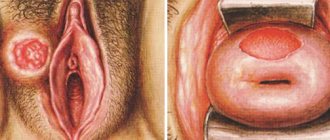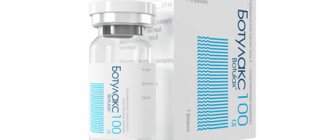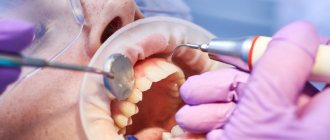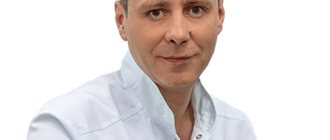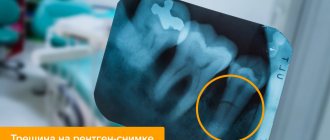Each set of teeth is unique
Each person's dentition is unique, just like their fingerprints.
Even if the differences in the distance between teeth in different people are fractions of a millimeter, each tooth has its own size, individual location, shape and a certain distance from neighboring teeth, which makes the dentition as a whole unique. Even two twins do not necessarily have the same dentition, because the formation of teeth is influenced not only by genes, but also by what happened in the first year of the baby’s life. For example, if one of the twins had the habit of thumb sucking, then his dentition will be different from the dentition of his brother or sister. Forensic dentistry is the science that identifies a victim or a criminal by their unique dentition. Specialists use databases with dental prints or x-rays.
Did you know that each person's tongue print is also unique?
№1
All people are born with 20 baby teeth, which are located under the gums. Each baby tooth appears at a predetermined moment for it. The same applies to their loss. They have a limited service life, after which they are replaced by radical (permanent) ones.
There are only two factors that speed up the loss of baby teeth: poor oral hygiene or an accident.
However, despite the fact that we are born with 20 baby teeth and they are temporary, it is advisable to prevent their premature loss. Their preservation ensures the safety and correct position of the permanent molars in the mouth. Usually they do not fall out until the age of 12 (again, if the two factors described above do not influence).
Teeth need saliva
Although saliva cannot replace brushing and flossing, it does serve a protective function.
Saliva helps protect teeth from plaque and also washes away food particles remaining on the surface of the teeth. Bacteria in plaque can lead to tooth decay as well as gum disease. A healthy person's body produces between 0.75 and 1.5 liters of saliva per day, which is about 35,000 liters over a lifetime - enough to fill two swimming pools! But xerostomia (insufficient salivation), a condition that is more common in older people, makes teeth more vulnerable and prone to decay.
Hairdressers used to be dentists
For several centuries, it was quite possible to go to a hairdresser not only for a haircut, but also to pull out a tooth or perform a simple operation. The thing is that back then barbers also performed the duties of dentists and surgeons, since they usually had sharp instruments necessary for operations and tooth extraction. Later, barbers began to be called barber surgeons to better advertise their craft (the word "dentist" came much later). Naturally, then no one cared about preventing tooth decay, as dentists do today, but simply removed damaged teeth.
Not everyone likes straight teeth
Orthodontics is a branch of dentistry that deals with the correction of uneven teeth and malocclusion.
Wearing braces is especially popular in North America (and many other countries), where people associate a beautiful smile with straight, white teeth. To correct uneven teeth, your dentist may recommend installing veneers on your teeth. Each treatment method has its own pros and cons, which you can learn more about from your doctor. Prices for installing veneers in Moscow vary depending on the material (ceramic or composite veneers), dental clinic, and skill level of the specialist. But straight teeth are not the ideal of beauty in all cultures. For example, in Japan, some people prefer to wear special veneers that make their teeth crooked - many young girls install them on their straight teeth.
Seals could explode
The notes of a 19th-century Pennsylvania dentist found references to three strange cases of teeth exploding during his career. The first incident occurred in 1817 when a priest's tooth exploded in his mouth. The monk suffered from severe toothache, which became simply unbearable, after which the tooth suddenly cracked and exploded. The pain immediately disappeared, and the priest went to sleep. The second incident occurred 13 years later, when a Mrs. Letitia D.'s tooth exploded after being in severe pain for several days. Mrs. Anna P.'s tooth also exploded in 1855.
A more extreme case occurred in 1871, when another dentist reported an explosion in an unnamed woman's tooth. The explosion was so loud that the unfortunate woman fell and became deaf for several days. Similar strange incidents were recorded until the 1920s, after which they disappeared no less mysteriously. Researchers believe the explosions were caused by the alloys used for fillings at the time. Early dentists created alloys by mixing metals such as lead, silver and tin. These metals could react and create something like an electrochemical cell inside the tooth, essentially turning it into a small battery.
Also, a byproduct of such reactions is often hydrogen, which theoretically had nowhere to go and simply accumulated inside the tooth. Researchers believe the hydrogen exploded after a chemical reaction between metals created a spark, or even simply while smoking a cigarette. However, some researchers doubt this theory, since there is no evidence that the affected people had fillings made of these particular metals.
Some teeth are very expensive
In 2011, at an auction in the UK, a Canadian dentist bought one of John Lennon's teeth for £19,500 ($30,500).
The buyer hoped to use DNA extracted from the tooth to clone Mr Lennon in the future. In 1816, a tooth said to have belonged to Sir Isaac Newton was also sold in London for £730 ($1,140), equivalent to $35,700 today. It was the most expensive human tooth sold in history.
Unfortunately, these days, the tooth fairy only nets kids an average of $3 per lost baby tooth.
Fact 9. Dentures were made in ancient times
Dentures are not an invention of our time. The first artificial teeth appeared a long time ago. According to archaeologists, the Egyptians and Etruscans have long made dentures from animal teeth.
Representatives of other nationalities made prosthetics from turtle shells. In ancient times, only professionals could process such materials, so artificial teeth were only available to very wealthy members of society.
In South America, archaeologists found a pair of artificial jaws with a full set of teeth (32 units). The prosthesis was made of quartz and amethyst.
Tooth enamel cannot repair itself
Unlike other organs of the human body, which can repair themselves if they are damaged to a certain extent, teeth do not have this ability. If a piece of a tooth breaks off, only a dentist can help in such a situation. If a tooth is cracked, you may need a filling or dental crown. If the root of the tooth is also affected, root canal treatment will be necessary. The outer layer of teeth, tooth enamel, is not living tissue. For this reason, it cannot recover on its own.
Art requires sacrifice
In the cult film “Fight Club,” Brad Pitt’s character loses his teeth from a good blow to the face. The actor wanted to make this episode as realistic as possible, so he removed several of his teeth , which he then replaced with dentures.
Some people are congenitally missing teeth
Hypodontia (or dental agenesis) is the absence of one or more teeth that were never formed.
The most common case is wisdom teeth, which are missing in 9-35% of people, due to racial factors. With hypodontia, lateral incisors or second premolars may also be missing. Adentia is a very rare disease in which a person is missing all (or several) teeth. The opposite situation is hyperdentia, when extra teeth grow in the mouth, “in addition” to the normal number of teeth.
Today, the problem of missing one or more teeth can be solved using modern prosthetic methods. The dentist will select the optimal method in each specific case, since there are contraindications that need to be taken into account. Dental implantation in Moscow is one of the most popular procedures on the dental services market.
Brushes and pastes. Start
- The Second World War gave a countdown to the invention of the electric toothbrush (it was powered by electricity, of course). It was patented by the Swiss. A strange idea at first glance quickly won the sympathy of consumers. We continue to learn amazing facts about teeth, or more precisely, about brushes: as many as 3,000 models were patented in the 60s!
- The Colgate brand was in trouble in the Spanish and Latin-speaking countries. The exact translation into the local language "Colgate" meant the order "go and hang yourself." Unexpected, right?
- Toothpaste was first introduced in Egypt 5,000 years ago. The recipe is simple: stir wine and pumice. The brush was invented 4500 years later in China. The materials are more than traditional: bristles and animal hair.
There is a tooth bank in Norway
MoBaTann, or dental biobank, is located in Norway.
Norwegian scientists plan to collect up to 100,000 children's baby teeth. All of these teeth will be the subject of research examining the relationship between environmental pollution and various diseases. It turns out that primary teeth can provide valuable information about the environment and nutrition during fetal development and early childhood. The condition of children's baby teeth is analyzed along with blood and urine samples from their parents. All this information will help provide an understanding of how environmental pollutants affect the health of mothers and children.
The most dangerous sport for dental health is hockey.
Contrary to popular belief that the most traumatic sport for the dental system is boxing, statistics claim that 68% of hockey players are injured.
That is, hockey is the most “tooth-dangerous” sport. In boxing, blows in most cases are “softened” by gloves, mouthguards also help to avoid unnecessary injuries, but in hockey - in the event of a blow under the helmet with a puck or stick - there is practically no chance of keeping the dentition intact. Many athletes have to resort to the services of aesthetic dentistry in order to restore not only the aesthetics, but also the functionality of the dentition through the installation of implants or a bridge.
In China about
In addition, in China there is a special holiday - “Love Your Teeth Day”, which takes place on September 20th. This day was first celebrated in 1989. In this way, the state decided to attract people's attention to issues of dental health and proper oral care.
The Russian-American clinic “US Dental Care” in Moscow specializes in a wide range of dental services - from ultrasonic cleaning, teeth whitening, aesthetic dentistry to complex surgical operations, implantation and dental prosthetics. For young patients, there is a pediatric dentistry department, where children are provided with a special approach taking into account age-related psychology. American dentistry is conveniently located in the center of the capital on Olimpiysky Prospekt (metro Prospekt Mira, Dostoevskaya). The elite dental clinic is equipped with the latest modern equipment, and a team of highly qualified dentists regularly undergo internships in America and improve their professional level.
The article was written using primary source materials https://www.studiodentaire.com/articles/en/10-things-you-didnt-know-about-teeth.php
